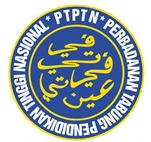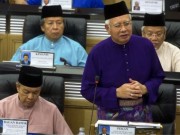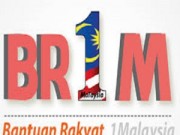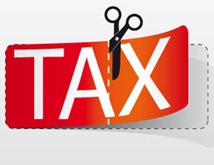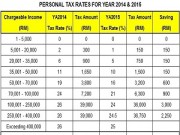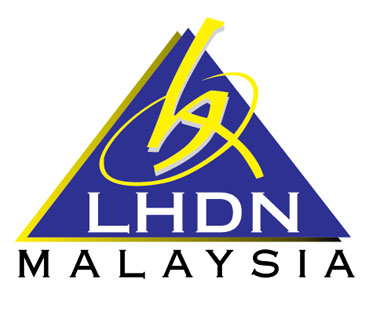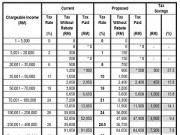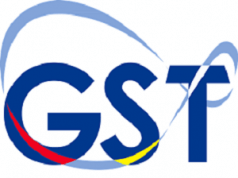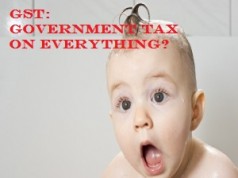Goods & Services Tax (GST) is now Law in Malaysia and to be formally known as “Goods And Services Tax Act 2014”.
Malaysian Goods and Services Tax Act 2014 has been gazetted on 19 June 2014.
GST will be implemented on 1 April 2015 and the standard rate of GST is fixed at 6%. Certain essential goods will be exempted from GST.
Companies and businesses with yearly sales of more than RM500,000 are required to charge 6% GST on all goods sold or services provided to their customers. Certain industries are exempted from applying GST.
Please click here to download full version of Goods And Services Tax Act 2014 
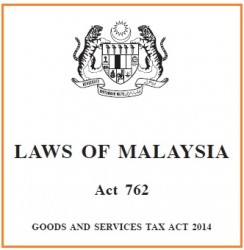
![]()
Borneo Post (22 June 2014): Adoption of GST Bill
MORE lawmakers voted for rather than against a new bill on the proposed introduction of a six per cent Goods and Services Tax (GST) in the country – with a total of 119 MPs in favour and another 81 against.
The tabling and passing of the GST Bill was in line with Putrajaya’s aim to implement the Goods and Services Tax by April 1, 2015, as a replacement for the current Sales and Service Tax.
The Finance Ministry said GST is necessary “to avoid over-reliance on taxes from oil revenue, personal income tax and diversity on other incomes.”
The Ministry added that before the Bill was tabled (and passed), the effects of GTS had been meticulously scrutinised to ensure its efficacy and effectiveness. While the starting rate is six per cent, there is as yet no official confirmation it will stay permanently at that level.
Since GST is a new concept to both Malaysian businesses and consumers alike, some confusion as to its implementation is only to be expected.
Economists say for proper implementation, conversion of the billing system and restructuring of the payment method is essential to ensure transparency.
Under the Bill, all businesses with annual sales turnover of RM500,000 and above are liable to be registered under GST whereas businesses with an annual sales turnover of less than this amount are not.
In many countries, GST is known as value added tax (VAT) as well as a multi-stage consumption tax on goods and services. As such, tax will be imposed “on the supply of goods and services at each stage of the supply chain from the supplier up to the retail stage of the distribution.”
The government is broaching the imposition of GST with caution as it does not want consumers to be burdened by higher costs. In consequence, the tax will be exempted from the bread and butter essentials of the ordinary man in the street.
These include items such as unprocessed meat, cooking oil, sugar and essential services like public transportation, electricity, education, healthcare, toll, financial transactions and life insurance.
Ninety per cent of the world’s populations are exposed to GST, including China, Indonesia, Thailand, Singapore and India.
GST is introduced in Malaysia as part of the tax reform initiative to improve the existing taxation system. With proper implementation, it will serve as a “more effective, transparent and business-friendly system.”
Read more at Borneopost Online.

TheSunDaily (21 June 2014): GST will allow govt to consider requests of civil servants
The increase in revenue from the implementation of the Goods and Services Tax (GST) will enable the government to consider numerous demands, including increase in allowances of civil servants.
Prime Minister Datuk Seri Najib Abdul Razak said the government needed new additional revenue to meet the demands, and a more transparent and efficient GST system can boost government revenue.
“If the president of Cuepacs (Congress of Unions of Employees in the Public and Civil Services) wants the allowances to be increased, as the Finance Minister, I must look for additional revenue, before I can consider the demands.
“We cannot borrow money from financial institutions such as the World Bank to pay salary, allowances, it is a recipe for economic disaster,” he said in his speech at the 2014 Workers Day gathering at the Melaka International Trade Centre here, today.
He said the rationale for the implementation of the GST must be understood by every strata of society as a system which would be beneficial to the nation and the people.
Najib also stressed that the implementation of the GST was not to burden the people but to strengthen the national revenue which would then be distributed back to them.
“Not all (taxes on) goods will go up, not all (taxes on) services will go up (because of GST) many basic services items will be exempted from GST. This is what we should understand,” he said.
Read more at TheSunDaily





